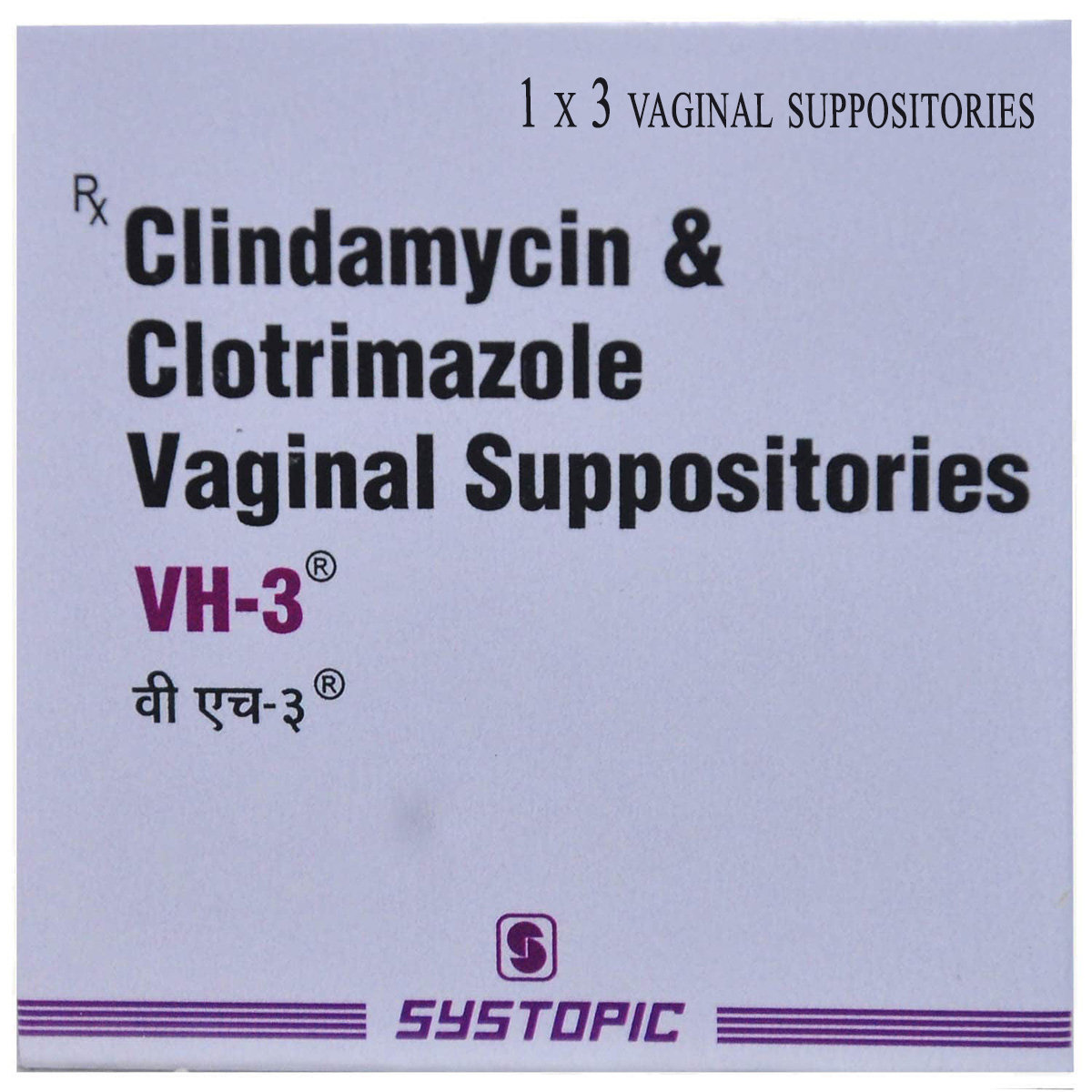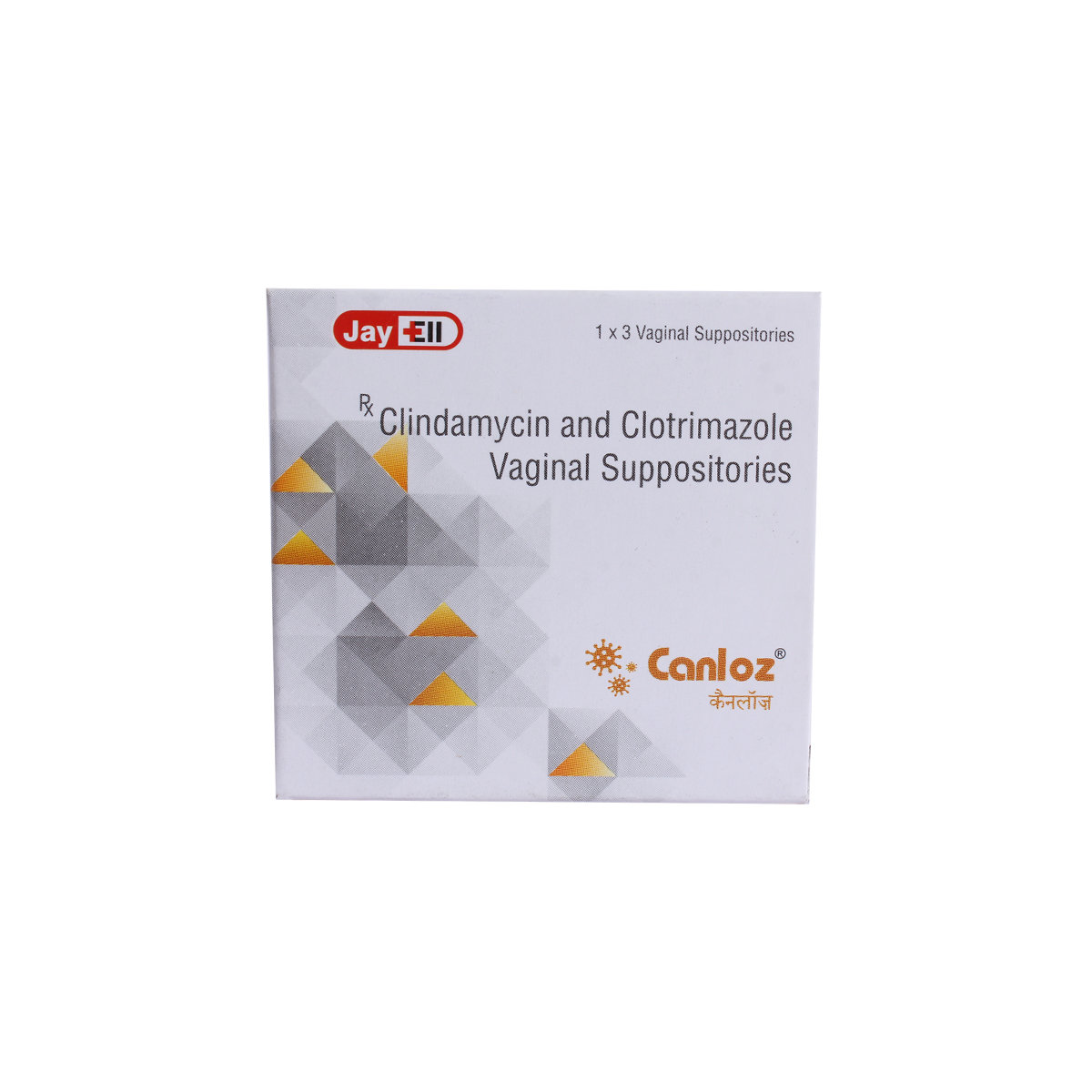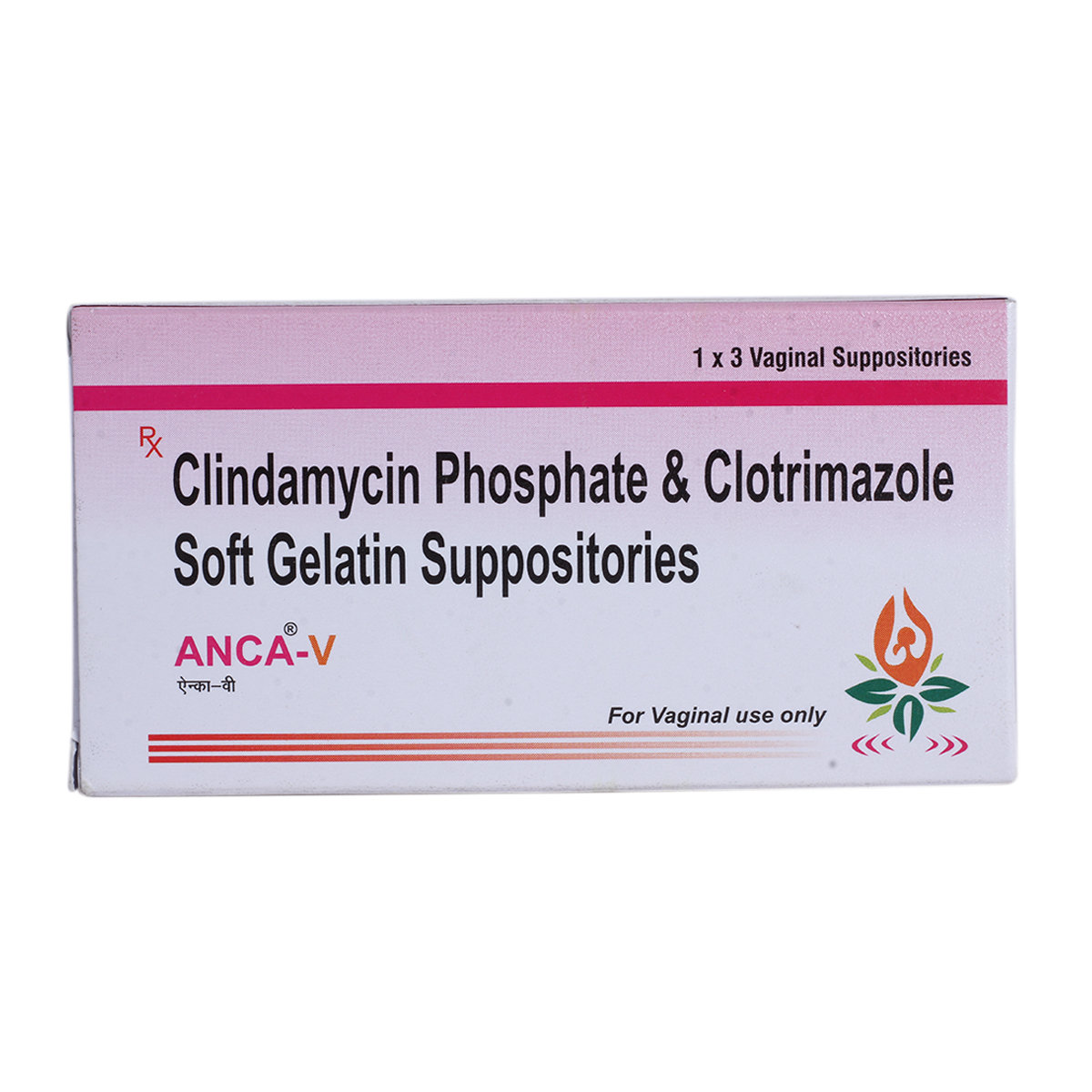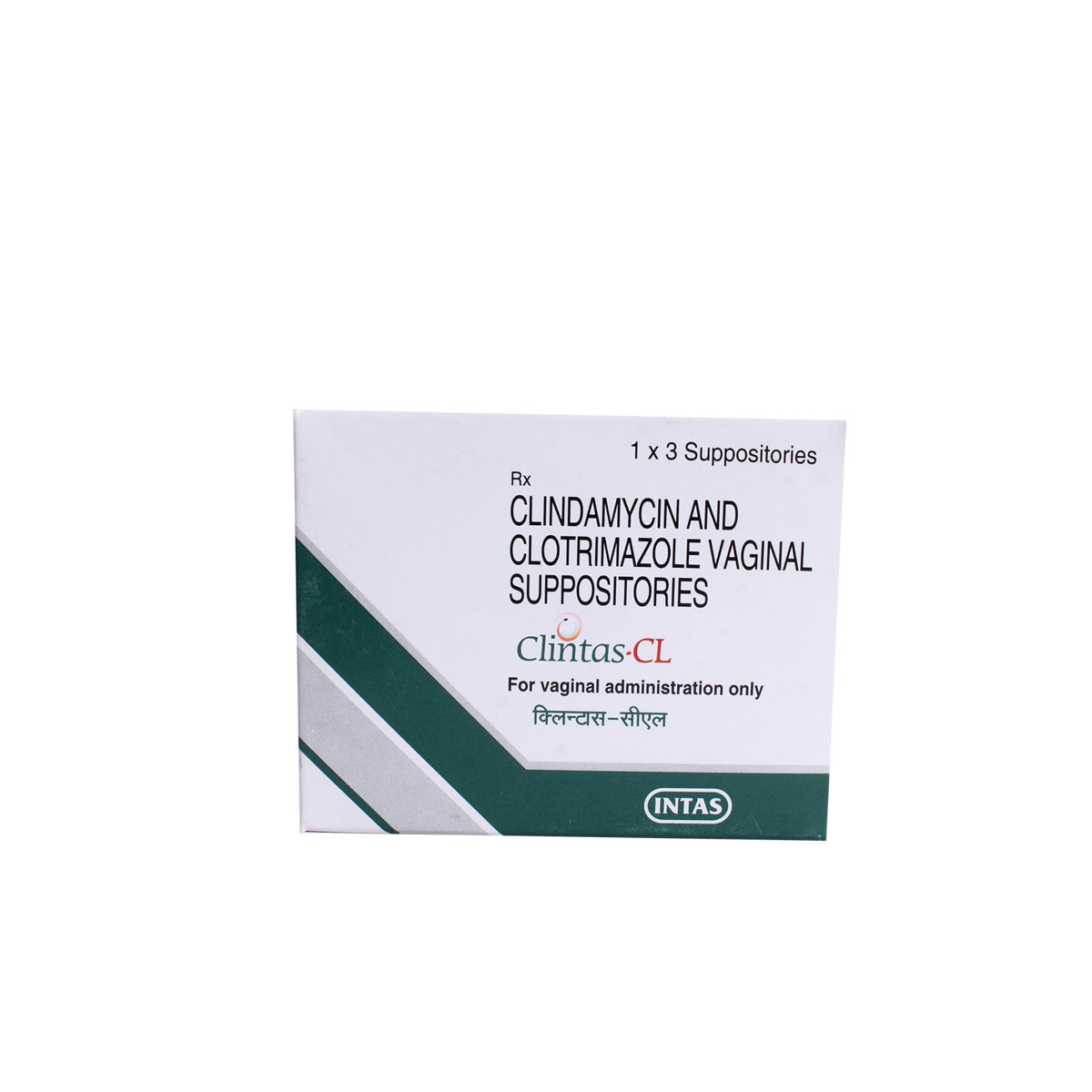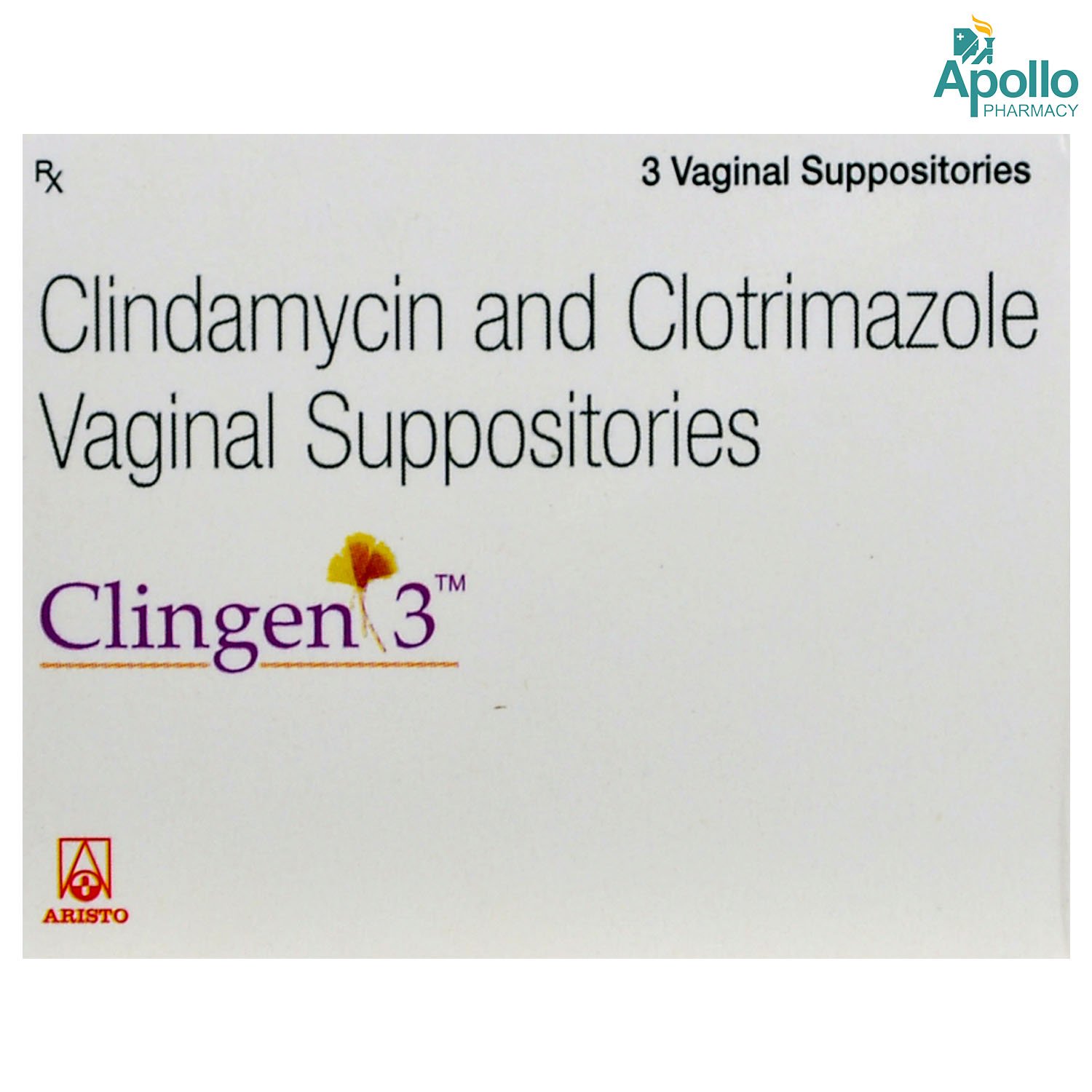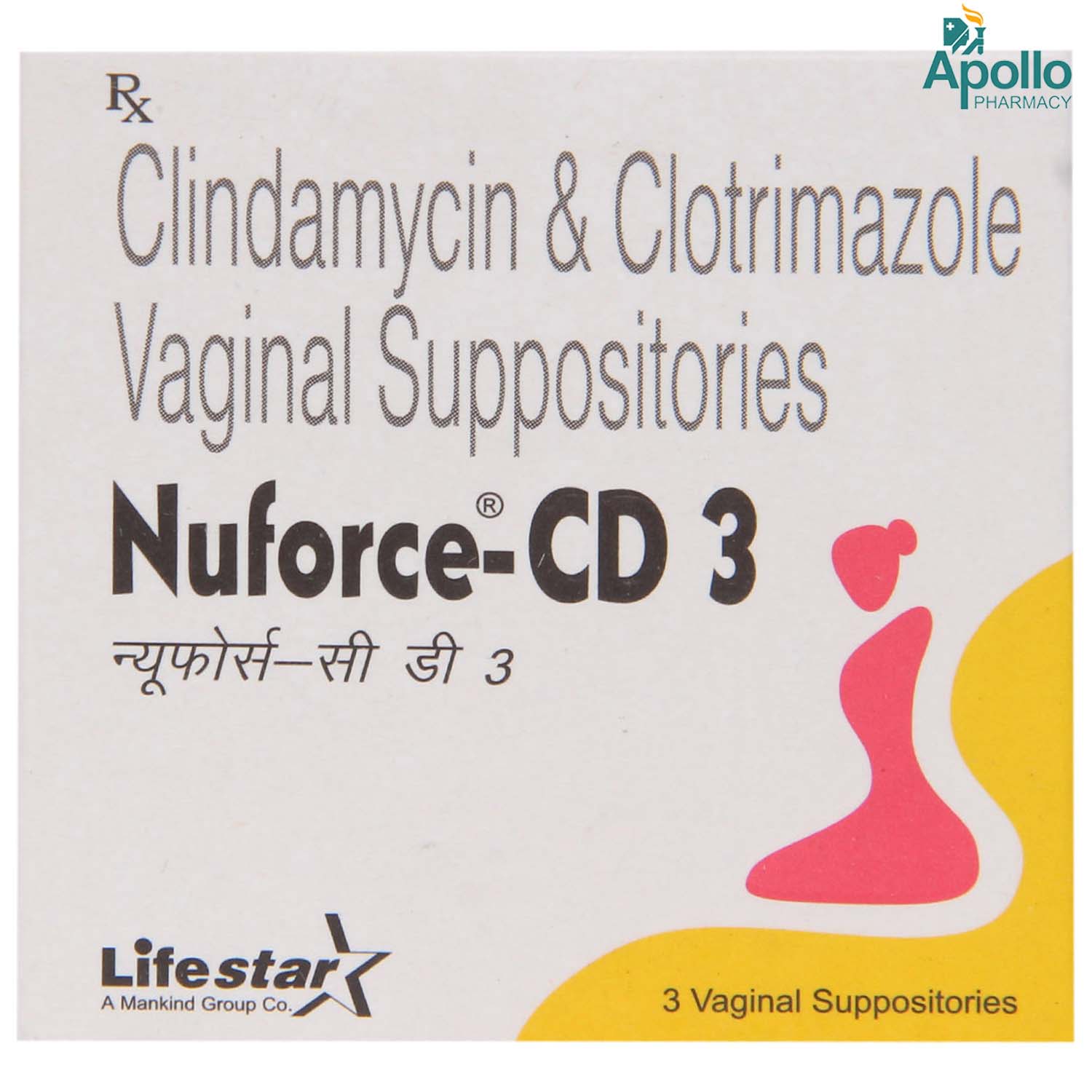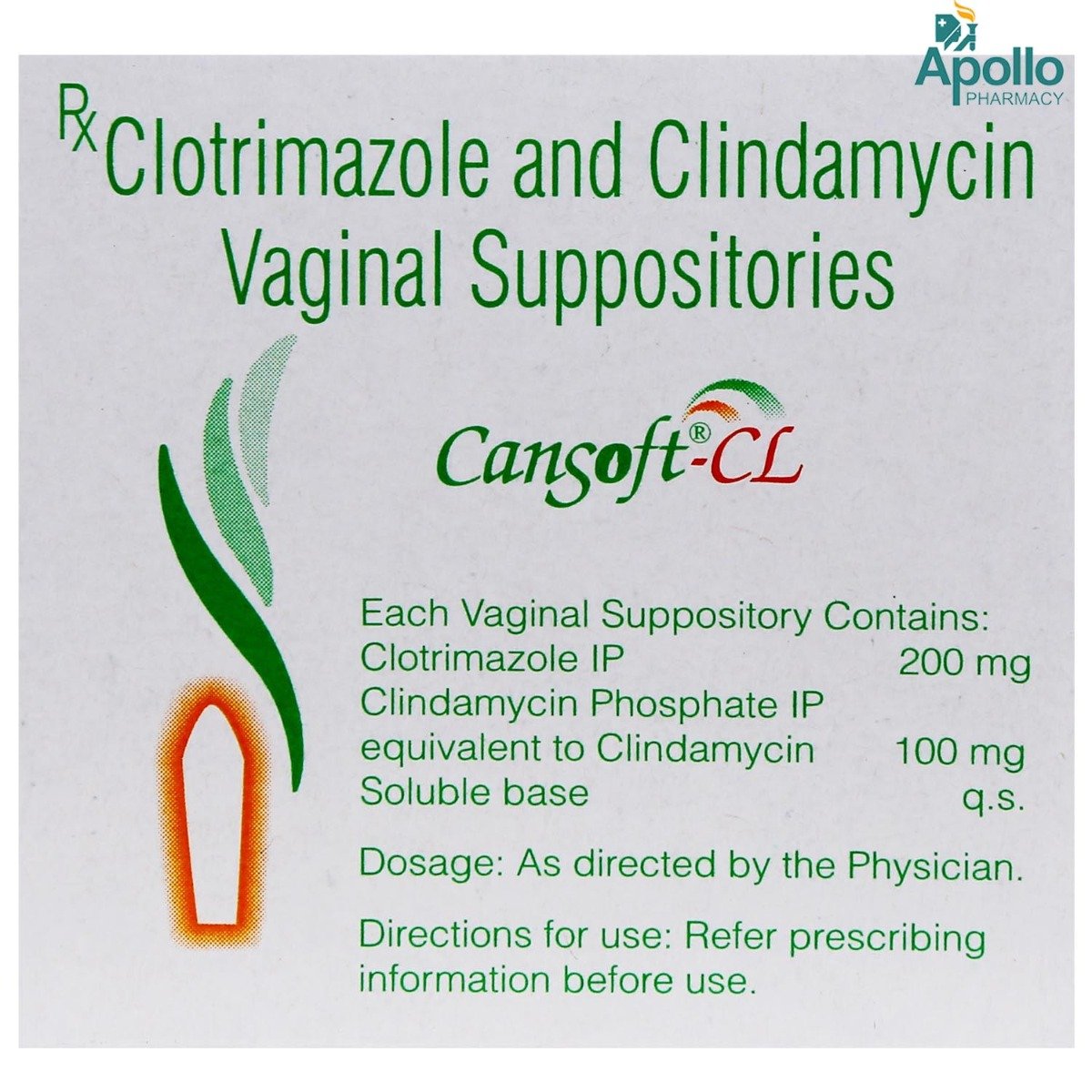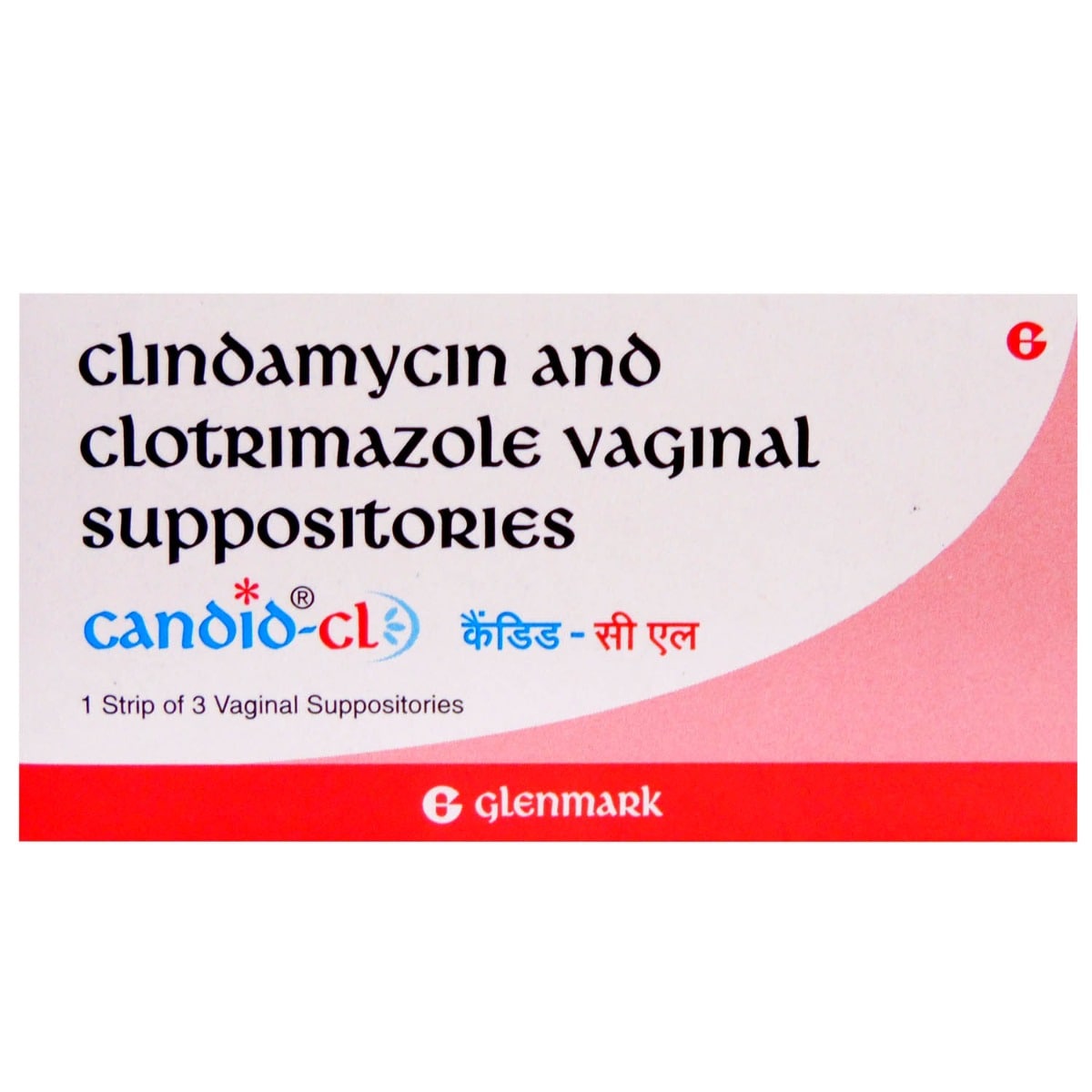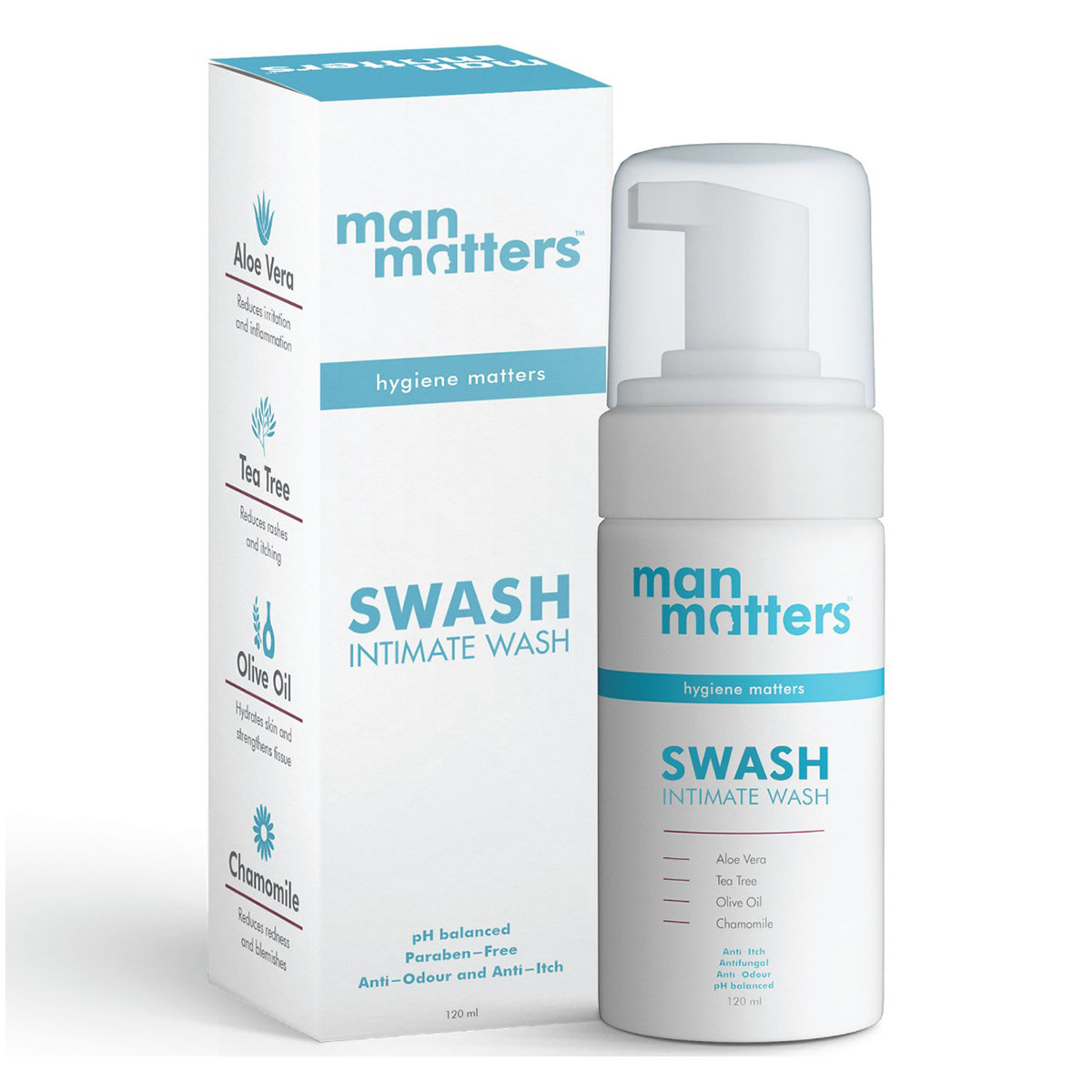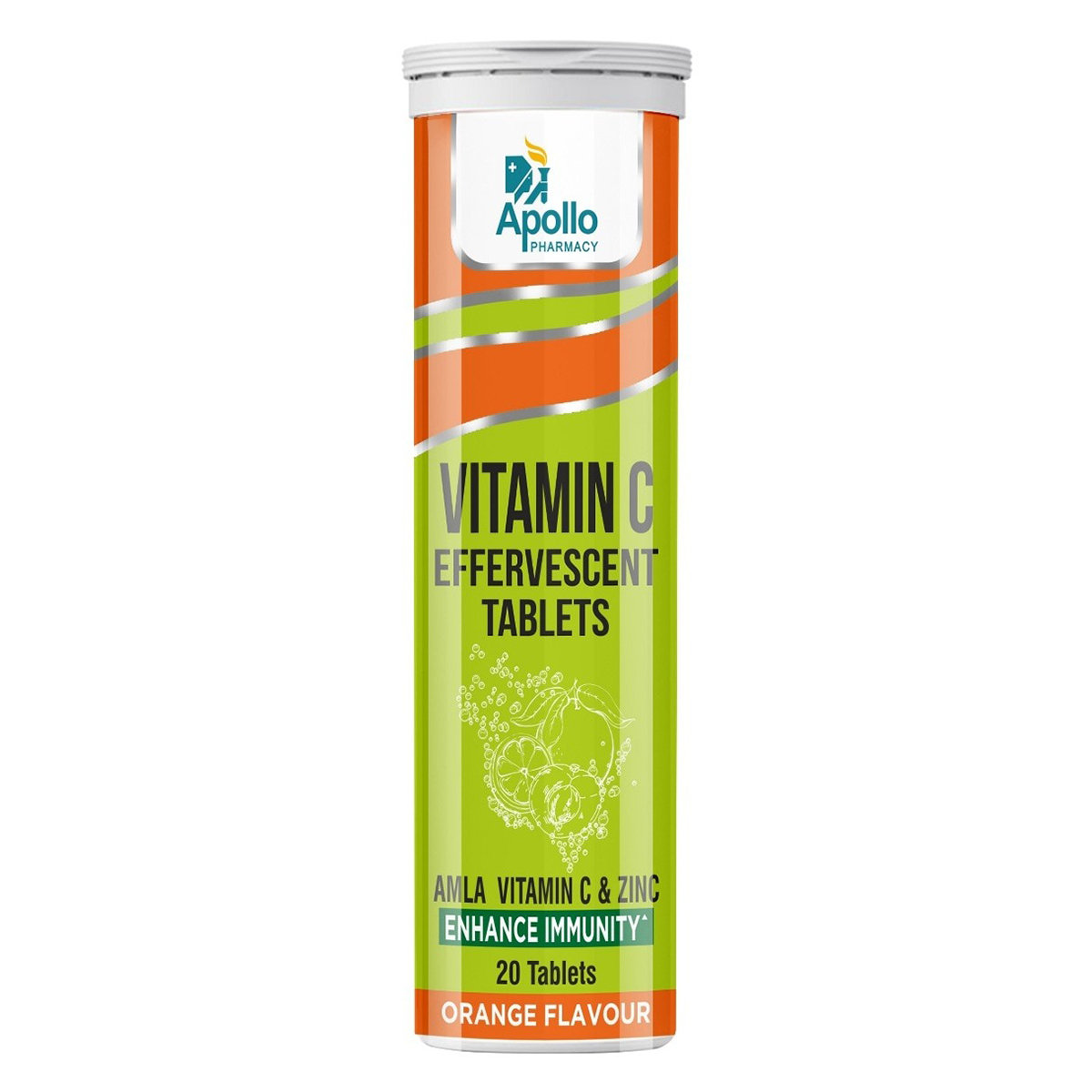3 Vc Suppositories

MRP ₹161.5
(Inclusive of all Taxes)
₹24.2 Cashback (15%)
know your delivery time
Provide Delivery Location
Composition :
Manufacturer/Marketer :
Consume Type :
Expires on or after :
Return Policy :

Secure Payment

Trusted by 8 Crore Indians

Genuine Products
Therapeutic Class
Country of origin
Manufacturer/Marketer address
Author Details
We provide you with authentic, trustworthy and relevant information
FAQs
Disclaimer
Alcohol
Safe if prescribed
No interaction found/established.
Pregnancy
Consult your doctor
There are limited studies on how 3 Vc Suppositories affects the unborn baby during pregnancy. It is advised to use 3 Vc Suppositories after consulting your doctor.
Breast Feeding
Consult your doctor
There is limited data on how 3 Vc Suppositories affects breastfeeding infants. However, systemic absorption of 3 Vc Suppositories is negligible after topical and vaginal administration. Consult your doctor for further advice.
Driving
Safe if prescribed
No interaction found/established.
Liver
Consult your doctor
Let your doctor know if you have any history of liver diseases before using 3 Vc Suppositories.
Kidney
Consult your doctor
Let your doctor know if you have any history of kidney diseases before using 3 Vc Suppositories.
Children
Safe if prescribed
3 Vc Suppositories is not recommended for children below 12 years of age. Do not give this medicine to your child without medical advice.
Product Substitutes
Reference
- https://www.drugs.com/mtm/clindamycin-topical.htmlhttps://www.drugs.com/mtm/clotrimazole.html
- https://www.researchgate.net/publication/282557722_A_Clinical_Experience_to_Assess_Safety_and_Efficacy_of_Fixed_Dose_Combination_of_Clindamycin_and_Clotrimazole_in_the_Treatment_of_Patients_With_Mixed_Bacterial_and_Fungal_Vaginosis
- https://www.webmd.com/drugs/2/drug-5115/clotrimazole-vaginal/details
- https://www.webmd.com/drugs/2/drug-78019-7016/clindamycin-vaginal/clindamycin-phosphate-cream-vaginal/details
- https://www.webmd.com/drugs/2/drug-78019-7016/clindamycin-vaginal/clindamycin-phosphate-cream-vaginal/details
About 3 Vc Suppositories
3 Vc Suppositories belongs to the class of medications called 'topical antibiotics' primarily used to treat vaginal infections, caused by bacteria (bacterial vaginosis), yeast infection (candidiasis) and parasitic infections (trichomoniasis). Bacterial vaginosis is caused by the change in the normal balance of vaginal bacteria. Vaginal yeast infection or Candidiasis is the infection of the vagina and tissues at the opening of the vagina (vulva). Trichomoniasis is a sexually transmitted infection caused by a parasite. Symptoms of a vaginal infection include itching, odour and abnormal heavy white discharge from the vagina.
3 Vc Suppositories comprises two medicines, namely: 'Clindamycin' (antibiotic) and 'Clotrimazole' (antifungal). Clindamycin belongs to lincomycin antibiotic group that works by inhibiting bacterial protein synthesis, required for the survival of the bacteria. As a result, it inhibits bacterial growth but does not kill them (bacteriostatic effect). On the other hand, Clotrimazole belongs to imidazoles antifungal group that kills fungi by causing holes in its cell membrane, thereby leaking all content out.
Use 3 Vc Suppositories as suggested by your doctor. Common side effects of 3 Vc Suppositories include burning sensation, irritation and itching. These side effects may not occur in every patient using this medication and differ individually. If the side effects persist longer or worsen, please seek a doctor's advice.
Inform your doctor if you are allergic to 3 Vc Suppositories or any of its components. Let your doctor know if have any liver, kidney and gastrointestinal diseases (diarrhoea and colitis, an inflammation of the colon), allergic conditions (asthma, hay fever, eczema), diabetes and immune system problems (HIV-AIDS). Clotrimazole in 3 Vc Suppositories may weaken rubber products' activities of contraceptive devices, latex condoms, diaphragms and cervical caps. Pregnant and breastfeeding women should consult a doctor before using 3 Vc Suppositories.
Uses of 3 Vc Suppositories
Medicinal Benefits Mweb
Key Benefits
3 Vc Suppositories is used to treat vaginal infections like bacterial vaginosis (BV), candidiasis, and trichomoniasis. It comprises two medicines: 'Clindamycin' (antibiotic) and 'Clotrimazole' (antifungal). Clindamycin is an antibiotic drug and works by inhibiting bacterial protein synthesis, which inhibits bacterial growth. It shows a bacteriostatic effect, which stops bacterial reproduction. Clotrimazole is an imidazole antifungal medication that stops the growth of fungi by causing damage and leakage to the fungal cell membrane. Together 3 Vc Suppositories treats vaginal infections caused by bacteria, yeast and parasites preventing white discharge, itchiness and inflammation in the genitourinary area.
Directions for Use
Side Effects of 3 Vc Suppositories
- Burning sensation
- Irritation
- Itching
Drug Warnings
Please inform your doctor if you use any prescription, non-prescription medicines, including vitamin and herbal supplements before using 3 Vc Suppositories. Do not use 3 Vc Suppositories if you are allergic to 3 Vc Suppositories or any of its components. Let your doctor know if have any liver, kidney and gastrointestinal diseases (diarrhoea and colitis, an inflammation of the colon), allergic conditions (asthma, hay fever, eczema), diabetes and immune system problems (HIV-AIDS). It is advised to use 3 Vc Suppositories under your doctor's supervision if you use other azole antifungal medicines. Clotrimazole and mineral oil additive in 3 Vc Suppositories may weaken rubber product's activity (such as latex condoms, diaphragms, cervical caps).
Drug-Drug Interactions
Drug-Drug Interactions
Login/Sign Up
Drug-Food Interactions
Drug-Food Interactions
Login/Sign Up
Drug-Diseases Interactions
Drug-Diseases Interactions
Login/Sign Up
Drug-Drug Interactions Checker List
- ATRACURIUM
- CISATRACURIUM
- DOXACURIUM
- MIVACURIUM
- PANCURONIUM
- PIPECURONIUM
- RAPACURONIUM
- ROCURONIUM
- VECURONIUM
- SUCCINYLCHOLINE
- TUBOCURARINE
- METOCURINE
- BUDESONIDE
- FORMOTEROL
Habit Forming
Special Advise
- Ask your partner to use condoms during sexual intercourse, which will help to prevent the further spread of sexually transmitted infections like gonorrhoea if exists presently.
- Proper hygiene and regular cleaning/washing of the genitourinary area with anti-infective wash is advisable.
Diet & Lifestyle Advise
- Avoid frequent douching to maintain the natural moisture in the vagina.
- Use mild soap while taking baths and prefer warm baths.
- Avoid harsh products on your skin.
- Manage stress, eat healthily, drink plenty of water, exercise regularly and get plenty of sleep.
- Avoid or limit the intake of alcohol and caffeine.
-
Wear under cotton underwear and pantyhose with cotton crotch which helps to prevent vaginal inflammation and irritation.
All Substitutes & Brand Comparisons
RX
VH-3 Vaginal Suppositories 3's
Systopic Laboratories Pvt Ltd
₹93.5
(₹28.07 per unit)
42% CHEAPERRX
Cans 3 Vaginal Suppository 3's
Ravenbhel Pharmaceuticals
₹104
(₹31.2 per unit)
35% CHEAPERRX
Canloz Suppositories 3's
Jay Ell Healthcare Pvt Ltd
₹118
(₹35.4 per unit)
26% CHEAPER

Have a query?
Buy best Obstetrics And Gynaecology products by
Sun Pharmaceutical Industries Ltd
Serum Institute Of India Pvt Ltd
Bharat Serums and Vaccines Ltd
Intas Pharmaceuticals Ltd
Akumentis Healthcare Ltd
Torrent Pharmaceuticals Ltd
Koye Pharmaceuticals Pvt Ltd
Abbott India Ltd
Cipla Ltd
Emcure Pharmaceuticals Ltd
Lupin Ltd
Neon Laboratories Ltd
Walter Bushnell
Zydus Cadila
Corona Remedies Pvt Ltd
Jagsonpal Pharmaceuticals Ltd
Mankind Pharma Pvt Ltd
Zydus Healthcare Ltd
Aristo Pharmaceuticals Pvt Ltd
Alembic Pharmaceuticals Ltd
Gufic Bioscience Ltd
Mylan Pharmaceuticals Pvt Ltd
Sanzyme Pvt Ltd
Lincoln Pharmaceuticals Ltd
Macleods Pharmaceuticals Ltd
West Coast Pharmaceuticals Pvt Ltd
Eris Life Sciences Ltd
Pfizer Ltd
Xeno Pharmaceuticals
Fourrts India Laboratories Pvt Ltd
TTK Healthcare Ltd
Ar-Ex Laboratories Pvt Ltd
Glenmark Pharmaceuticals Ltd
Samarth Life Sciences Pvt Ltd
Systopic Laboratories Pvt Ltd
Vivo Lifesciences Pvt Ltd
Bayer Zydus Pharma Pvt Ltd
Blisson Mediplus Pvt Ltd
Dewcare Concept Pvt Ltd
Organon India Ltd
Pharmanova India Drugs Pvt Ltd
Wellesta Healthcare Pvt Ltd
Win Medicare Ltd
Cadila Pharmaceuticals Ltd
Martin & Harris Pvt Ltd
Pharmanova Specialties Pvt Ltd
Shield Healthcare
Svizera Healthcare
Chem Med Pharmaceuticals
Eurozen Healthcare
Ferring Pharmaceuticals Pvt Ltd
German Remedies Ltd
Goddres Pharmaceuticals Pvt Ltd
Hetero Healthcare Pvt Ltd
Indiabulls Pharmaceuticals Pvt Ltd
Infar India Ltd
La Renon Healthcare Pvt Ltd
Uni Sankyo Ltd
Zuventus Healthcare Ltd
Alkem Laboratories Ltd
Amelia Healthcare Pvt Ltd
Bio Mines
Blisson Medica Pvt Ltd
Burot Pharmaceutical
Cadila Healthcare Ltd
Cheminnova Lifesciences
Cosmic Life Sciences
Elbrit Life Sciences Pvt Ltd
Evaevo Lifescience Pvt Ltd
Gland Pharma Ltd
Hibiscus Pharmaceuticals Pvt Ltd
Hindustan Latex Ltd
Karisca Healthcare Pvt Ltd
Maneesh Pharmaceuticals Ltd
Medishri Healthcare Pvt Ltd
Micro Labs Ltd
Nextgen Healthcare
Novartis India Ltd
Oaknet Healthcare Pvt Ltd
PSI India Pvt Ltd
Stoicure Pharmaceuticals Pvt Ltd
Uniza Healthcare Llp
Albert David Ltd
Astra Zeneca Pharma India Ltd
Astraea Life Sciences Pvt Ltd
Besins Healthcare
Bharat Biotech
Biological E Ltd
Biomiicron Pharma India Pvt Ltd
Carexia Healthcare Llp
Chemo Healthcare Pvt Ltd
Cieo Remedie
Cureill Pharma Pvt Ltd
D Cure Pharmaceuticals Pvt Ltd
DR Johns Lab Pharma Pvt Ltd
Delight Biopharma Pvt Ltd
Dew Life Pharmaceuticals
East West Pharma India Pvt Ltd
Elder Pharmaceuticals Ltd
Eskag Pharma Pvt Ltd
Frequently Bought Together
Customers Also Bought


